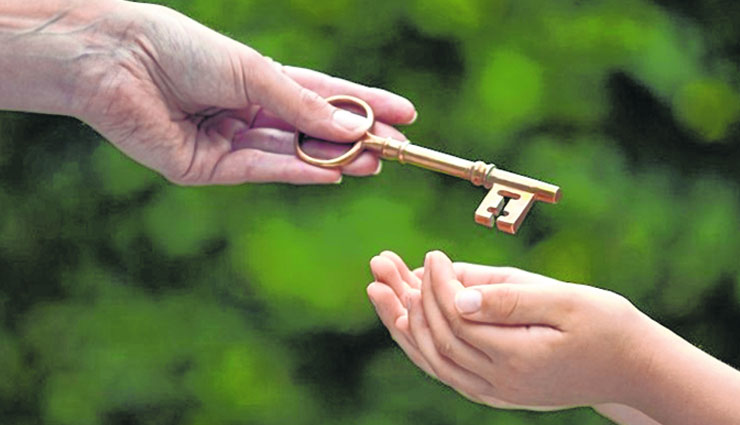Divorced Women To Get Equal Share In Property
By: Priyanka Maheshwari Sat, 01 Sept 2018 11:10:59

There is a need to recognise the role of woman in a household and regardless of her financial contribution, she should get an equal part of the property gained after marriage upon divorce, the Law Commission suggested on Friday.
It said all personal and secular laws should be amended accordingly.
However, it cautioned that at the same time, this principle does not automatically translate to an ‘absolute’ equal split of property at the end of the relationship, as in a number of cases such a yardstick may bring an “unfair burden” to one of the parties.
“Thus, it is important to retain the discretion of the court in such cases,” the commission said in its consultation paper on ‘Reform of Family Law’.
It said all property acquired after marriage of either spouse be treated as a unit between the couple.
It is often women who compromise on careers in order to support families and they also contribute to a major share of housework which is never calculated in monetary terms, the paper said.
The society inadequately values housework, it said, adding for working women, childbearing results in a career break which affects their employment in a way that it does not affect their husband’s career.
“Therefore, it is important that regardless of whether the wife – financially or monetarily – contributes to the family income, her contribution to a household in terms of household labour, home management, and child bearing and care should entitle her to an equal share in a marriage and thus all property for income gained after marriage should be divided equally upon divorce,” the paper said.
It said this principle does not mean that inherited property will also be included in this division “but its value can be taken in to account by the court for determining maintenance and alimony”.
The paper suggested that the Hindu Marriage Act, 1955, Special Marriage Act, 1954, the Parsi Marriage and Divorce Act, 1936 (for Christians), the Dissolution of Muslim Marriages Act, 1939 can be amended to reflect this change.
The Special Marriage Act is described as a ‘secular law’ as inter-faith marriages are solemnised under it.
Instead of a full-fledged report on a uniform civil code, the law panel preferred a consultation paper as it had little time at hand to bring out a comprehensive report.
‘Let 18 years be legal age for marriage for men too’
New Delhi: The Law Commission on Friday suggested that 18 years should be the minimum legal age for men and women alike to get married, saying the insistence on recognising different ages of marriage between consenting adults must be abolished. In its consultation paper on ‘Reform of Family Law’, the panel also said “if a universal age for majority is recognised, and that grants all citizens the right to choose their governments, surely, they must then be also considered capable of choosing their spouses”. The age of majority, 18 years, must be recognised uniformly as the legal age for marriage for men and women alike as per Indian Majority Act, 1875.
‘Confessing in itself cannot be a criminal act’
New Delhi: Demands such as one seeking a ban on church confessions as they could lead to blackmailing of women are “knee-jerk reactions” and one should be wary of them, the Law Commission said. Confessing in itself cannot be a criminal act, the panel said. “It’s the misuse of confessions by select priests that needs to be checked. It is a far more progressive and sensible suggestion to eventually also include nuns who can hear confessions. This need not be enforced by law, but be brought in through consensus building within communities,” the document said.





